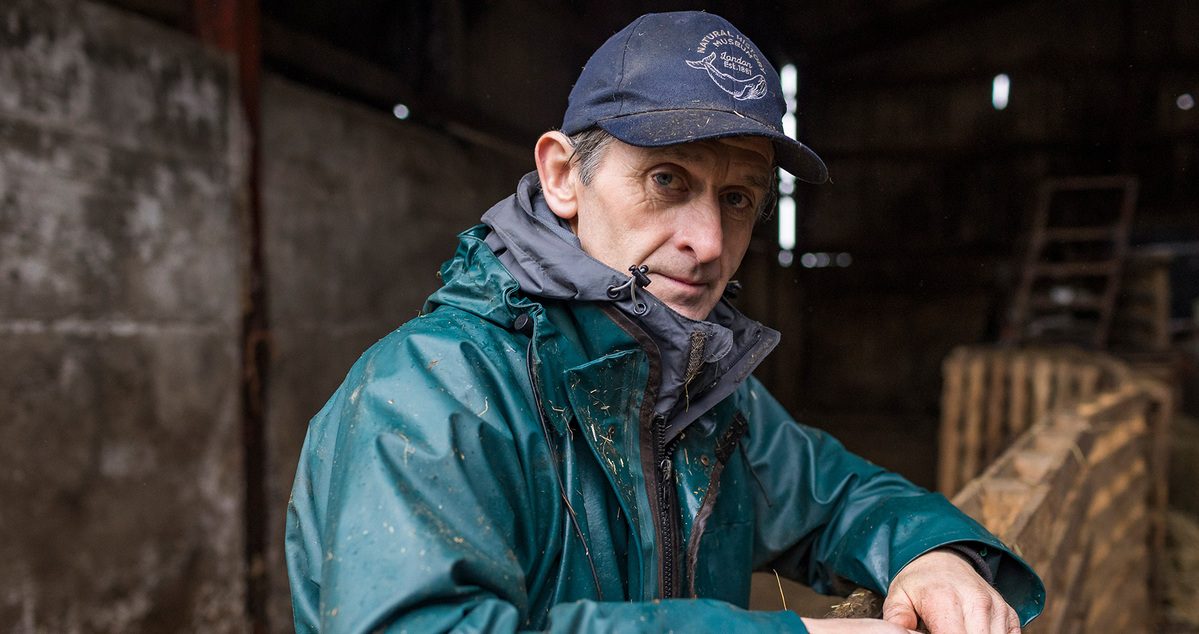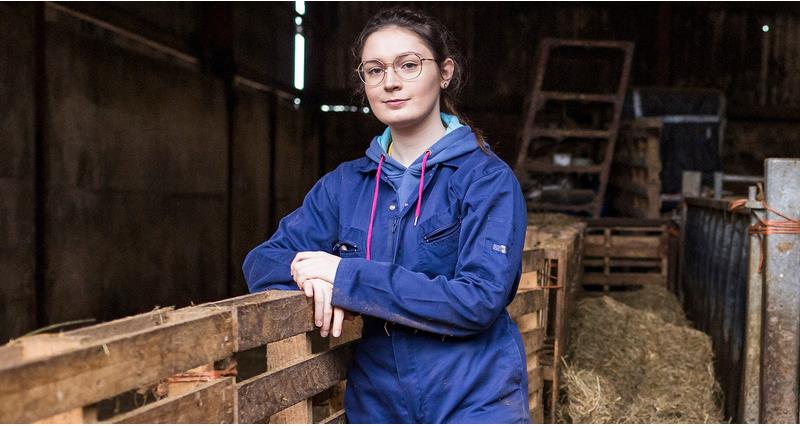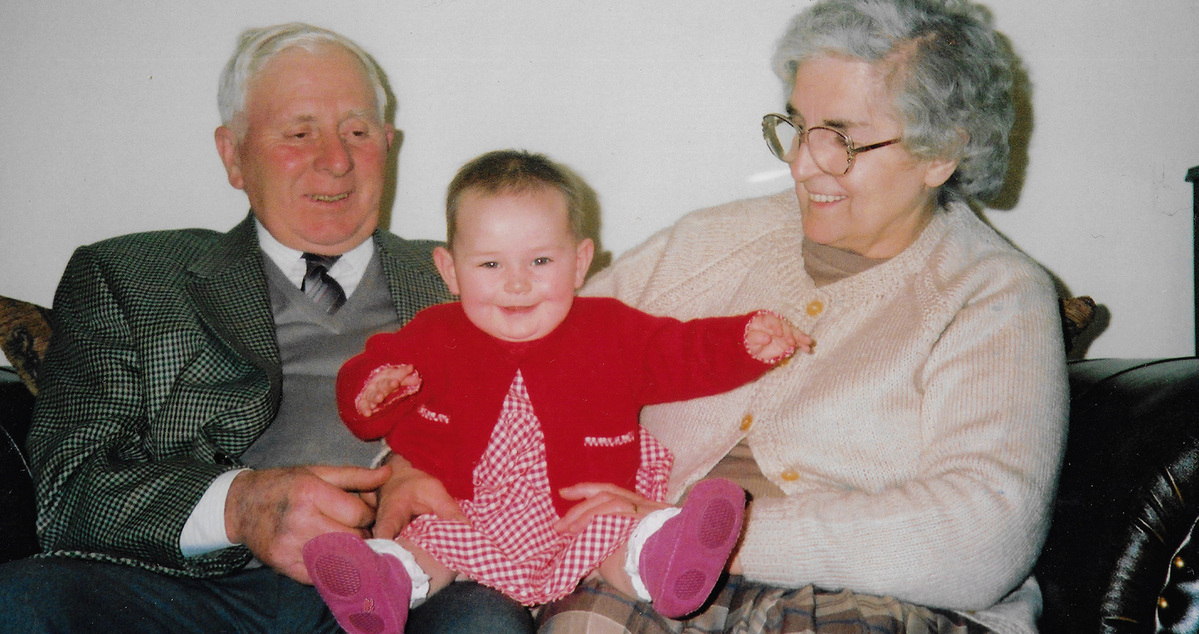In 2022, the leading cause of death across the UK was dementia and among those statistics was my grandmother, Gwyneth Morgan of Pantynawel Farm, aged 87.
The disease, which will affect one in two of us either directly or indirectly throughout our lives, is something that as a family and business we are still suffering the effects of more than two years on, both mentally and financially.
My grandmother, or ‘nan’ as she was to me, was a selfless, hardworking, loving and charitable woman, an inspiration to many in more ways than one and, like many of her generation, kept any and all of her problems to herself – adamant that she didn’t need nor want help.
Spotting the signs
Thinking back, the signs of nan’s dementia were there for years before it really impacted her, but as someone who would see her daily the changes were not obvious to me at the time.
It was only in later stages of the disease that these changes became harder for nan to hide.
At the beginning, her forgetfulness, which was mainly asking several times if you wanted a cup of tea, a drink I never liked, was easily attributed to other things such as stress and her incredibly hospitable nature.
Alongside doing the admin side of the family farming business, she was also the primary caregiver for my grandfather, Howell, who had a stroke the year I was born in 2001.
Certain things that we have all done became more of a regular occurrence for my grandmother – perhaps your tea would be too sweet, the potatoes would occasionally boil dry and, on one occasion that we both laughed over, she melted off the bottom of the black pepper pot on the hot stove.
Photograph: Megan with her grandparents, Howell and Gwyneth
“The lack of dementia awareness, information and resources within agriculture is definitely something that need to be rectified.”Young farmer Megan Morgan
The house was always full of visitors, whether it be friends or family, and nan managed to hide her symptoms well from us all – including the GP.
Business wise, and unbeknown to us, there was paperwork being mislaid, bills forgotten about and forms not filled in.
Following the death of my grandfather in 2014, my nan’s forgetfulness became worse. It only became apparent to me that something was really wrong when a few weeks after my grandfather died, we were both sat in her living room where she turned to me and asked, ‘where’s Howell?’, a question soon followed by a desire to go home, a home she had not lived in since at least 1957.

Photograph: Gareth Morgan
Gareth Morgan, Megan’s dad said: “I was expecting it [the dementia symptoms] based on what my grandfather went through.
“I thought I was preparing myself for the first time my mother didn’t recognise me, but when you hear the words ‘and who are you?’, it is not your mind that goes through it, it’s your heart.
“It is heartbreaking. So, although in a way I was prepared for it, it’s still not the same as when you actually experience it. That really is something else.”
‘It was easier to live in nan’s world’
Our family’s concerns about nan’s dementia were initially dismissed by the family GP, so a diagnosis was very hard to obtain.
Tests did eventually show that nan was suffering from Vascular Dementia, the second most common dementia after Alzheimer’s disease. Apart from being given a number for in-home carers, we were given no guidance, no signposting and no social worker – nothing to help us or my grandmother with her dementia care/diagnosis, not even from the charities or organisations that both of my grandparents had been involved in or supported throughout their lives.
With her dementia progressing and dad now singlehandedly running both the admin and practical side of the farm, I would take a dinner up to her after school and spend as much time with her as I could.
Walking into the farmhouse was like walking into another world, a world where both of nan’s parents were still alive, my grandfather was working up the cattle shed and her in-laws still lived in the other part of the house, and a world where I liked tea.
Often, I would hear her talking to people who weren’t there, but it was easier to live in nan’s world than to break her heart repeatedly by telling her that the people she spoke so fondly of, had been dead longer than I had been alive.
Following a fall at home and issues with the in-home carers, we thought it would be safer for my nan to go into a dementia-specific care home local to us.
Dad left his job and ploughed the vast majority of his life savings into settling bills and getting the accounts back into the black while simultaneously his mental health seeped into the red.
As no will had ever been put into writing and we were still going through probate following my grandfather’s death, like many farmers, we were asset rich but cash strapped. In order to pay the extortionate private care home fees, as the farm was still under my nan’s name, part of my grandparents’ farm which they had worked all of their lives to build up, had to be sold off.
More resources needed
I spent hours every night researching dementia or looking for at least one site or phone number where farmers could call for help and guidance specific to our situation and found nothing. My family and I learnt a lot about succession planning and the importance of being open with your mental and financial struggles in a way that nobody should have to – the hard way.
The lack of dementia awareness, information and resources within agriculture is definitely something that need to be rectified.
Succession planning would’ve helped immensely in our situation, not only planning for what you do when someone has passed away but what you do when, in the case of my grandmother, someone cannot legally make decisions for themselves anymore. It is important that wills are written and legal, and not unwritten promises like in the case of my family, where greed can cost more than money.
“Too often, LAS only receive a request for support after the effects of this disease have begun to take their toll, resulting in anguish for the family and the need to go through the Court of Protection to set things right.”
NFU Legal Assistance Scheme Manager Regina Owusu
Two years on from the death of my grandmother and we are still going through probate, almost ten years since it was first initiated following my grandfather’s death.
The emotional and financial burden still has its hold and while some days it may be harder to find a reason to smile, a lovely new life being born or watching calves running around their pen can make things seem a bit brighter, even just temporarily.
My only wish is that I could walk into the farmhouse just one more time to share it all over a nice cup of sweetened tea warmed in the teapot on the stove with my wonderful nan, Gwyneth.
Megan recommends reading Somebody I used to know by Wendy Mitchell for those wanting to learn more about dementia.
Get support
No-one wants to think about their own mortality or the prospect of suffering from dementia, but the best way to deal with these issues is to face them head on, before problems arise.
Members are urged to seek support via CallFirst on 0370 8458458, who can refer them on to the NFU Legal Panel Firms for help in drafting and putting in place the various legal documents needed to ensure the farm is dealt with as you would wish them to be, ahead of any symptoms or issues arising.
NFU Legal Assistance Scheme Manager Regina Owusu oversees the NFU’s Legal Panel Firms. She said: “Too often, LAS only receives a request for support after the effects of this disease have begun to take their toll, resulting in anguish for the family and the need to go through various complex legal processes to set things right.
“This can be costly, stressful and time consuming, but if you act early enough, legal help can be obtained to put your farming affairs in order before the worst happens. As the saying goes, ‘prevention is better than cure’.
“Legal Health Check and Contract Checking support are both available for NFU members, via the Legal Panel Firms, and LAS subscribers can receive financial support towards the costs of those services.”
Find out more about dementia awareness and how to get support at: Dementia and farming – where to get support.


